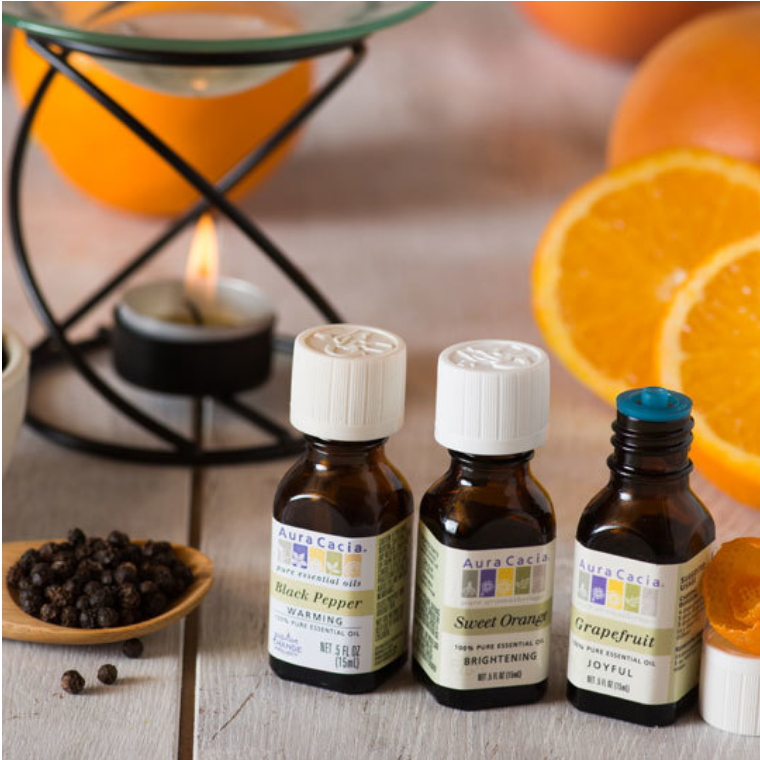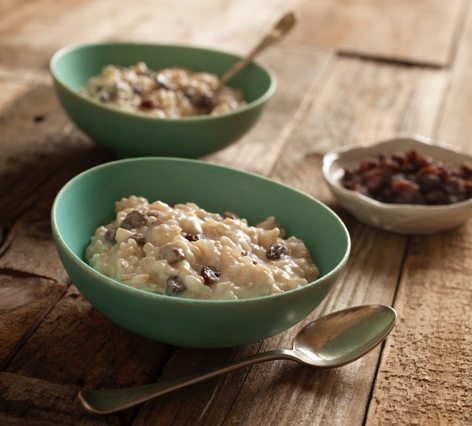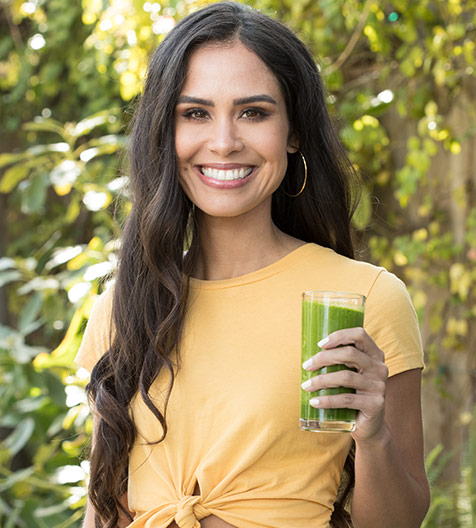Here’s the real: sleep has a huge effect on how we feel every day and the quality of our entire lives. I’m not exaggerating! And I’m not just talking about your energy levels and cognitive functioning.
Sleep also impacts the health (or unhealthiness) of your skin, your hormonal balance, moods, ability to concentrate at work or enjoy playing with your kids (versus feeling like it’s drudgery), and so many other things.
Sleep offers a valuable healing opportunity for your body to repair and restore itself from the myriad sources of stress from the day. There’s good and there’s bad stress, with more of the latter unfortunately accruing from sources like commuting, traffic, deadlines, multi-tasking, running toddlers, in-laws ☺…the list goes on and on.
Sure, we’d all love to get that recommended seven to eight hours of shuteye a night, but the reality is that many of us settling for a fraction of that at times (or all the time!). In fact, according to The Centers for Disease Control and Prevention, a staggering 49.2 million people have difficulty focusing due to a lack of sleep.
And the risks involved extend far beyond some extra yawning: a sleep shortage has also been linked to depression, poor memory, and even weight gain. Luckily, there are plenty of natural sleep aids you can take advantage of.
Ready to feel alert, rejuvenated, and refreshed? Ready to operate at your best at home and work every day? I think so if you’re reading this right now! Consider trying the following natural sleep remedies:
Snoozing 101: Your internal clock
Before we dive into some natural ways to fall asleep, it’s important to understand why you do or don’t feel tired, and how your body works in regards to catching some Z’s.
If you’ve ever taken note that you have a tendency to have spikes and drops in energy at particular times of the day, you’re not imagining things. Your body depends on an internal clock called a circadian rhythm [1], which alternates between sleep and wake cycles, thus explaining why you may feel alert late morning and early evening, but drowsy late afternoon and late at night.
Naturally, the level of darkness and lightness in your surroundings can have a strong effect on your rhythm: when night falls, your eyes actually submit a signal to your brain that it’s time for sleep, and your body then releases melatonin to make you feel sleepy.
Less than excellent sleep habits (like falling asleep or waking up at different times every day) can negatively impact how your circadian rhythm works. And the more sleep-deprived you are, the more dramatic swings you’ll experience in how alert or tired you feel.
Sleep-friendly foods
Let’s talk tryptophan. This essential amino acid not only helps the body to produce and keep hormones in check, but it also acts as a natural mood regulator and is one of the best natural aids for sleep. And it’s known for its all-around calming, anxiety-reducing effects. Did your ears just perk up?
To boot, 5HTP, a by-product of tryptophan, can boost the production of serotonin, known as the feel-good hormone, which elevates feelings of well-being and safety.
The research says it all
Tryptophan has been revealed to result in an increase in rated sleepiness as well as a decrease in total wakefulness among study participants [2, 3].
So, where can you get a dose of this natural remedy for sleep? Whole grains like quinoa and brown rice are a phenomenal source of tryptophan. When you’re craving a healthy dessert, indulge your sweet tooth with my Namaste Brown Rice Pudding and you’ll be drifting off into snoozeland before you know it.
Nuts and seeds are also packed with tryptophan. In fact, sunflower seeds, almonds, walnuts, and cashews have over 50 milligrams in just one-quarter cup, and pumpkin seeds contain a whopping 110 milligrams in the same serving. Legumes like lentils, black beans, and split peas are also rich in the amino acid as well, with an average of 180 milligrams per cup.
One of my favorite ways to get in tryptophan pre-sleepy time is create an amazing sleep elixir, by warming a glass of almond or hemp milk (both great sources of trypotophan), and adding in some cinnamon, turmeric, ginger or cloves or a combination. Check out one of my sleep elixir recipes here!
Mind-calming minerals
Calcium plays a role in your sleep cycle as well. Research has revealed that calcium actually assists brain cells in using tryptophan to produce melatonin, which is the body’s own natural sleep aid [5].
And remember, there are TONS of bio-available plant-based sources of nutrition, that provide calcium that our bodies actually retain.
Sure, dairy does contain calcium, but it is acid-forming upon digestion, so your body ends up leaching calcium from your bones to buffer it, resulting in an overall net calcium loss. Broccoli rabe, kelp, sesame seeds, tahini, black-eyed peas, sweet potatoes, almonds and oranges are just a few amazing plant sources of calcium [6].
Speaking of minerals, a magnesium deficiency can also be the culprit if you’re having trouble sleeping. In fact, the average adult only gets about 66 percent of their recommended daily intake of this mineral [7].
Meanwhile, a study conducted at the University of Geneva’s Department of Psychiatry in the Biochemistry and Neurophysiology Unit showed that consuming higher levels of magnesium resulted in more consistent, quality sleep [8].
Note that seeds are chock full of magnesium — especially pumpkin seeds, which boast 150 milligrams in just a 1-ounce serving (37% of your RDA). Just half a banana has 37 milligrams of magnesium.
Green veggies are also a great source of magnesium, so be sure to drink your daily Glowing Green Smoothie®! Yep, just another reason in a super long list.
Essential oils
Research is continuing to mount on the many benefits of essential oils — from reducing anxiety to helping to keep hormones in balance to alleviating skin conditions and digestive issues. Smell is powerful!! Let’s talk about the power of essential oils when it comes to sleep now.
For example, lavender oil has been shown to have real benefits in regards to relaxation. One study, for example, showed that the aroma alone of lavender helped to improve sleep quality in healthy students.
The quality of sleep showed that lavender improved the mean scores of sleep quality in fifteen healthy students [9], as well as in middle-aged women with insomnia [10].

I love the smell of essential oils! And for sleep you can get great benefits when falling asleep and helping you stay asleep through using an essential oil diffuser.
Another study revealed that individuals with insomnia who were treated with aromatherapy cartridges that contained six to eight drops of lavender oil experienced an improvement of 2.5 points on a sleep quality index. [11].
It’s not just lavender alone that can have these effects, either. Sometimes you can reap even more rewards when you mix certain oils together.
For example, a study published in Complementary Therapies in Clinical Practice involved giving aroma sticks to cancer patients, and the oil combos used included bergamot and sandalwood, as well as mandarin, frankincense, and lavender.
A whopping 94% of patients reported relying on the aroma sticks to help them sleep better, and 92% claimed they would continue to use them going forward for that purpose [12].
How to incorporate essential oils
As for how to incorporate essential oils into your daily life, there are several methods to choose from. While essential oils can be applied topically, this is mainly advantageous when using them for skincare purposes.
Essential oils can also be ingested (only in very small doses to be safe: think one to three drops dissolved in water)- though this should only be done if you are absolutely sure that you don’t have any allergies or issues.
I personally don’t ingest any essential oils- I like to smell them! And for sleep benefits, which is our focus here, you can get great benefits when falling asleep and helping you stay asleep through using an essential oil diffuser.
You can also simply add a few drops of an essential oil onto a cotton pad and tuck it into your pillowcase to smell through the night. This was a tip from our aromatherapy educator. You can find her on my Beauty Inside Out podcast shows.
Your lungs actually contain a massive number of blood vessels, which can soak up these oils as you inhale them and then carry them through the bloodstream and throughout the body.
Always be sure to choose high-quality essential oils, because if they’re 100 percent pure, the more fully you’ll be able to take advantage of their benefits. Look for therapeutic grade oils that are certified USDA organic.
They also smell so much better. Ever smell a fake rose oil? It smells nasty and can give you a headache! Yuck. No thanks!
The problem with prescriptive medications
There are plenty of prescription medications these days that are aimed at helping combat insomnia. The problem with these drugs? The side effects can be pretty scary — from physical weakness and dizziness to difficulty keeping your balance and cognitive impairment (specifically, problems with attention or memory).
They can imbalance your body, as most all medications do to varying extents, as they have to be processed through your liver and affect your blood and body overall, and can further imbalance your gut microflora. The good news is, essential oils don’t come with these risks.
A lack of quality sleep can negatively impact almost every aspect of your life, from your emotional well-being and your work productivity to your personal relationships. But here’s the thing: You don’t have to settle for feeling sluggish! And you definitely don’t have to seek out risky prescription medications to resolve your frustrations.
My SleepWell System
Sleep is something I take very seriously, which is precisely why I now offer a digital course focusing specifically on sleep. My SleepWell System is a comprehensive program that’s aimed at helping users improve both the length and quality of their sleep.
It will include more than 40 coaching videos, daily rituals, and useful tips and research you can apply to your life, to guide you on this very important journey to enhanced snoozing.
By the end, you’ll ideally be able to maintain a consistent bedtime, get an adequate amount of sleep on a nightly basis, and wake up (perhaps even without the need for an alarm clock!) feeling energized.
The natural sleep aids we discussed here can definitely help you get more restful sleep. As you try them out, I recommend keeping a journal to log your results. This will allow you to hone in on which methods are most effective for you.
If you want to learn more about your sleep habits and how that affects your overall healthy and beauty, take my 90 second sleep quiz by clicking here!
And with that, sweet dreams!
Kimberly
Resources:
[1] What is Circadian Rhythm?[2] Effects of L-tryptophan on sleepiness and on sleep
[3] Effects of tryptophan loading on human cognition, mood, and sleep
[4] Sleep Hygiene and Recovery Strategies in Elite Soccer Players
[5] Insomnia: Studies Suggest Calcium And Magnesium Effective
[6] The 20 Best Calcium-Rich Foods That Aren’t Dairy
[7] Ten Foods High in Magnesium
[8] Blood and brain magnesium in inbred mice and their correlation with sleep quality
[9] Effects of lavender aroma on sleep quality in healthy Japanese students
[10] The Effect of Lavender Aromatherapy on Autonomic Nervous System in Midlife Women with Insomnia
[11] A single-blinded, randomized pilot study evaluating the aroma of Lavandula augustifolia as a treatment for mild insomnia
[12] The use of aromasticks to help with sleep problems: A patient experience survey





0 Comments